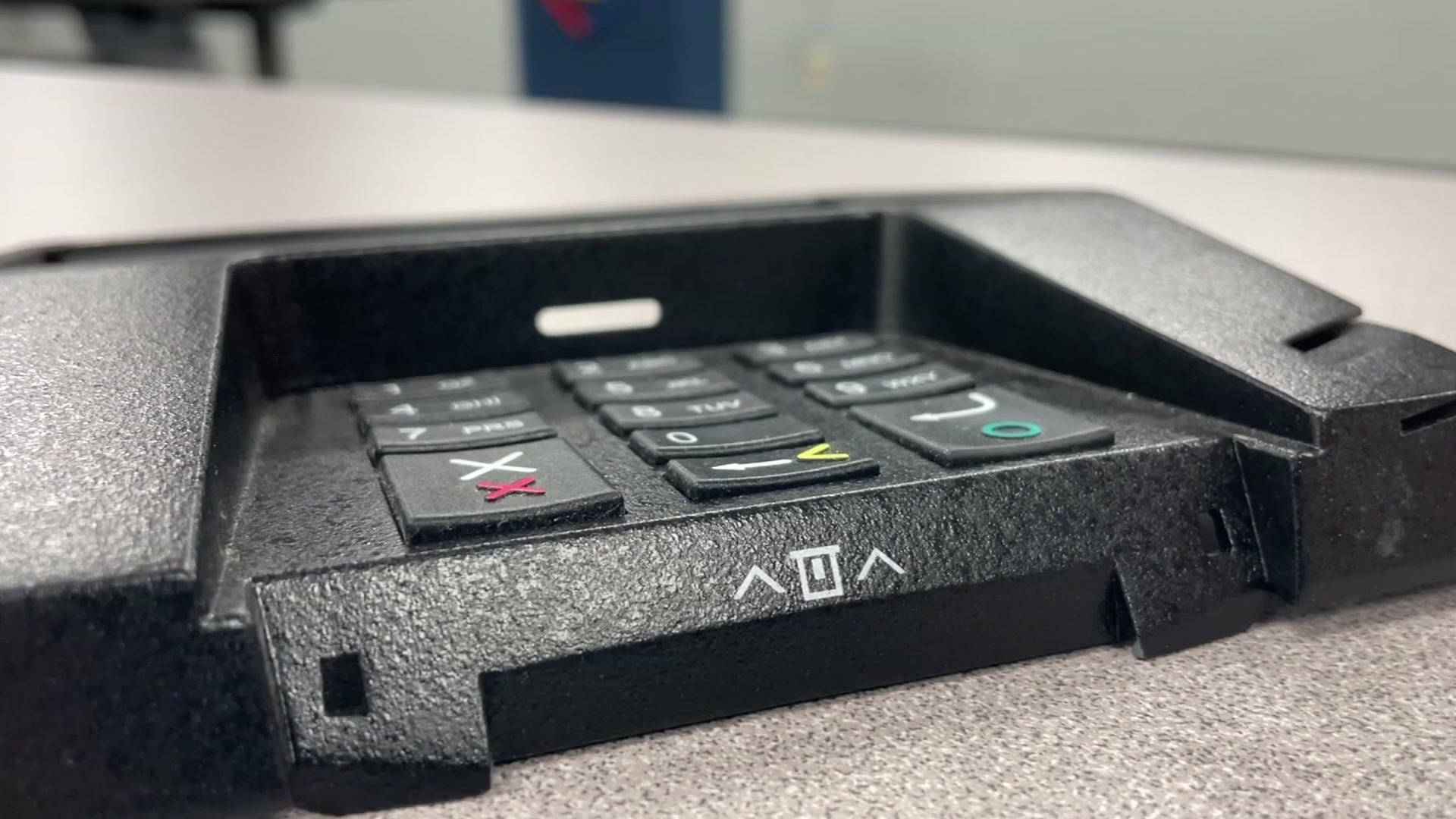After Jonnay Mckinley fell behind on rent late last fall, she took steps to ensure the federal eviction moratorium would give her more time to catch up during the pandemic. But last Friday, she and her three young daughters were evicted from her Dallas apartment.
Mark Melton, an attorney who signed on to help her pro bono, said Mckinley’s eviction should not have happened.
What Do I Do?
Just before the New Year, Mckinley received a notice to vacate on her door. She said she didn’t know eviction proceedings had started, but she knew she was behind on rent after losing her job earlier that year.
Mckinley said she printed and signed a required declaration form under the CDC’s eviction moratorium.
Mckinley said she took a hard copy to her leasing office and followed up with an email.
Mckinley also shared a photo of the signed declaration with the court.
Local
The latest news from around North Texas.
Last Thursday, Mckinley said her landlord handed her a letter. It said a constable would arrive by 9 a.m. the next day to proceed with her family’s eviction. The letter asked her to remove her belongings from the apartment or they would be put outside the fence line of the apartment complex.
“I felt so let down, like, what do I do?” said Mckinley.
Mckinley said she scrambled to find a mover, using money she’d earned waiting tables that week to move her five, seven and eight-year-old children into a hotel.
“My kids, their faces. They’re, like, mom, I’m sorry. They feel sorry for me,” recalled Mckinley. “You tried so hard and it still wasn't good enough.”
Mckinley said she didn’t understand why she was being evicted on January 29 when she believed the moratorium would keep her in her home until at least January 31. At the time, she wasn’t aware the CDC extended the moratorium through the end of March.
What Happened?
Mark Melton works with a group of lawyers who volunteer to assist tenants facing eviction during the pandemic.
While the CDC moratorium doesn’t pause all evictions and isn’t automatic, it is meant to temporarily stop evictions for non-payment of rent. Tenants have to sign a declaration, certifying they’re within the income limits, suffered a loss of income and are trying to obtain assistance to make rent payments. The declaration must be turned into the landlord.
Melton explains that if a tenant in Dallas county says they submitted a CDC declaration form during an eviction, the constable is supposed to stop the eviction and report back to the court. At that point, a landlord could request a declaration hearing.
Mckinley showed NBC 5 emails she shared with the apartment complex and the court.
“This isn't even a he said, she said scenario,” said Melton. “We have hard proof that this was submitted to all of the relevant parties and none of them did anything about it.”
The Dallas County Constable’s Office for Precinct Three told NBC 5 Responds it wasn’t aware Mckinley had a declaration and that Mckinley didn’t mention it during the eviction.
Mckinley said she did.
Judge Al Cercone, whose office received a copy of Mckinley’s declaration via email, said the office told Mckinley to make sure the landlord has it.
Judge Cercone said the landlord would have to take action and when Mckinley didn’t go to court for her eviction trial or appeal the decision to evict her, Cercone said the eviction proceeded.
“Having not appeared at trial and then not appealing and then when the judgment became final, the court has to issue the writ if it’s requested any time after that,” said Cercone.
But Melton said someone along the way should have hit pause on Mckinley’s eviction. He also points to the Texas Supreme Court's 32nd emergency order that says a tenant must provide the signed declaration to the landlord and the court. According to the order, the court must abate the eviction action unless there's a declaration hearing and a judge determines the eviction can continue.
The Struggle for Families in the Pandemic
“Before corona happened, I had a very good job,” said Mckinley.
Mckinley said she was on good financial footing before the pandemic. She had a job as a loan processor which covered her rent and allowed her to save money.
When schools and daycares closed, Mckinley, a single mom, found herself working from home while three school-age children were trying to learn from home.
“There was no way. The internet wasn't even strong enough for all of our devices and for me to work, it just was impossible,” said Mckinley.
She said her computer kept timing out and she eventually lost her job.
Mckinley said she lived off savings and a side job doing hair until falling behind in rent last fall.
By then, programs for housing assistance during the pandemic were winding down.
Mckinley got another job waiting tables, but it still wasn’t enough. An eviction citation showed Mckinley owed $1,915.63 when she was taken to court. She said her landlord told her she faced additional late fees.
After Friday’s eviction, Mckinley moved into a hotel with her kids.
“I feel like a failure right now because I feel like I'm letting them down, having to live in a hotel and be homeless. It's the worst, worst feeling,” said Mckinley.
A Chance to Move Back
NBC 5 Responds asked Tribeca on the Creek about Mckinley’s case on Monday.
By Tuesday, Mckinley’s lawyer told NBC 5 the apartment complex agreed to waive late fees and allow Mckinley to move back in.
Melton is paying one month’s rent for Mckinley and said he’ll work with her to apply for housing assistance – when applications are available.
Apartment management confirmed to NBC 5 it reached a deal and said it has no other comment about the eviction.
“Somebody slipped through the cracks and it has life-altering consequences to this young family. It never should have happened,” said Melton.
Wednesday, Mckinley got the keys to her old apartment.
She said she’s grateful for the help in getting her children back into their home.
“My main thing is my babies. It's not about me. It's about them,” said Mckinley.
Where to Look for Help
Melton said if you’re facing eviction, reach out for legal help as soon as you can.
Dallas Evictions 2020 is offering free legal representations to tenants facing eviction.
Legal Aid of Northwest Texas is another option.
The Texas Tenants’ Union, a nonprofit tenants’ rights group, also lists resources for renters in crisis.
NBC 5 Responds is committed to researching your concerns and recovering your money. Our goal is to get you answers and, if possible, solutions and resolution. Call us at 844-5RESPND (844-573-7763) or fill out our Customer Complaint form.



